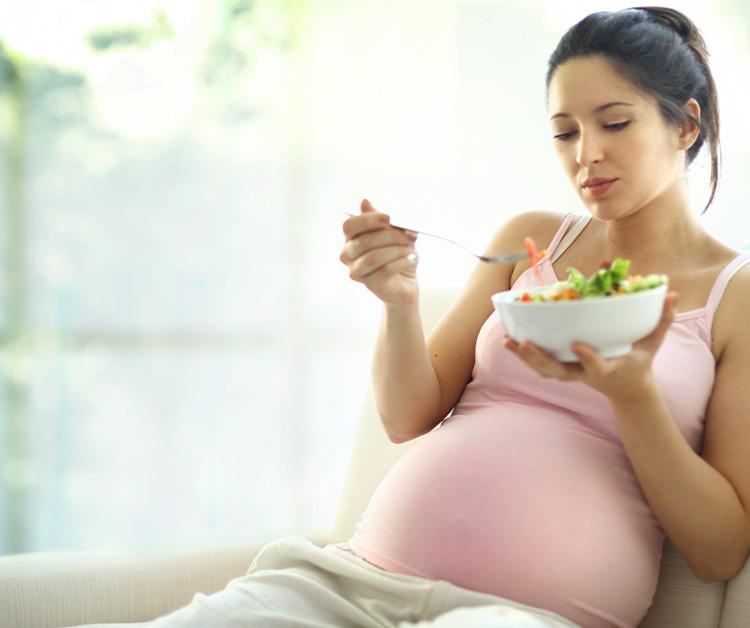Due to maintenance, rewards points for receipt uploads will be delayed. Thank you for your patience!

Don't let heartburn get in the way of nutrition for your baby's optimal development. Here's how to make simple adjustments to ease pregnancy heartburn symptoms while eating well.
Even if you never experienced heartburn before your pregnancy, you might find that certain foods or scenarios trigger it now that you’re pregnant. Heartburn is common for many women during pregnancy; it may feel like a burning sensation rising up your esophagus to just behind your breastbone or like you’re bloated or full. It can also make your mouth taste sour, cause you to burp, or make you feel nauseated.
When we eat, food travels down the esophagus into the stomach, and there's a valve that connects these two pieces of the GI tract. The job of that valve is to keep food in its place. Heartburn—during pregnancy or otherwise—occurs when this valve allows stomach acid to travel back up into the esophagus.
During pregnancy, there are two reasons the valve separating the stomach and esophagus may allow stomach acid to pass through: the hormone progesterone causes the valve to relax, or your expanding third-trimester uterus puts pressure on your stomach and intestines—or both. For many pregnant women, heartburn is especially prevalent in the third trimester because of this pressure. If you experienced heartburn often before pregnancy, you’re more likely to experience it while pregnant.
The first step toward relieving pregnancy heartburn is proactively trying to prevent it. Here are some tips for how you can prevent pregnancy heartburn—or, if you’re already experiencing it, ease symptoms and find relief:
If you’ve had heartburn before becoming pregnant, you may be accustomed to reaching for over-the-counter antacids. Be careful with heartburn medications during your pregnancy, though. Check with your doctor before taking any medications, such as over-the-counter antacids. Some contain high levels of sodium, which can result in fluid buildup and swelling, or include aluminum as an ingredient, which is considered unsafe to consume during pregnancy.
Instead of over-the-counter medications, consider one of these natural remedies for pregnancy heartburn relief:
If making adjustments to your diet or other at-home remedies haven’t provided pregnancy heartburn relief, it may be time to bring it up to your doctor. Your doctor can help you choose an appropriate over-the-counter antacid (if you’ve not already tried taking them for relief with your doctor’s advice), figure out if a prescribed medication or supplement is the culprit, or prescribe a stronger medication to treat your pregnancy heartburn.
If you experience any of the following symptoms with your pregnancy heartburn, see your doctor as soon as possible:
Remember, pregnancy heartburn, like a lot of pregnancy-related symptoms, is temporary and will likely resolve when baby is born. A good bit of heartburn can be avoided by simple dietary changes that fit inside the guidelines for good prenatal nutrition. Discover additional prenatal nutrition tips and recipes within our helpful prenatal content guide.
All information on Enfamil, including but not limited to information about health, medical conditions, and nutrition, is intended for your general knowledge and is not a substitute for a healthcare professional's medical identification, advice, or management for specific medical conditions. You should seek medical care and consult your doctor or pediatrician for any specific health or nutrition issues. Never disregard professional medical advice or delay seeking medical treatment, care, or help because of information you have read on Enfamil.